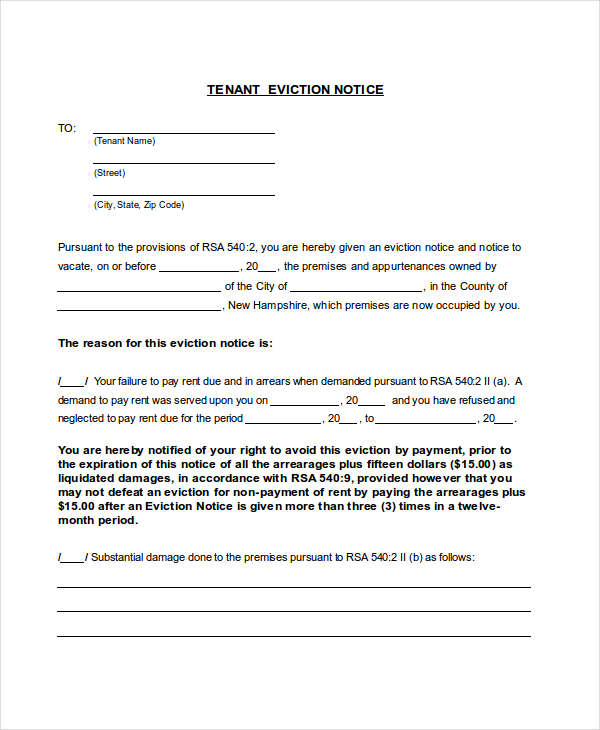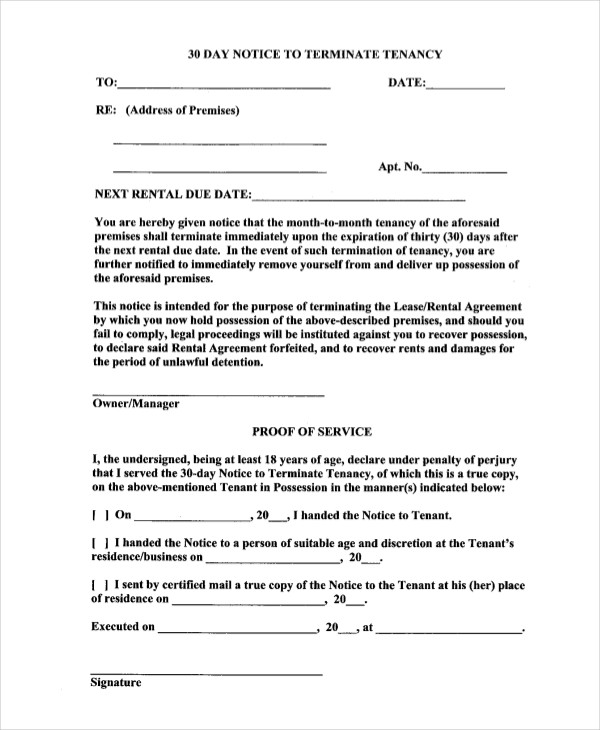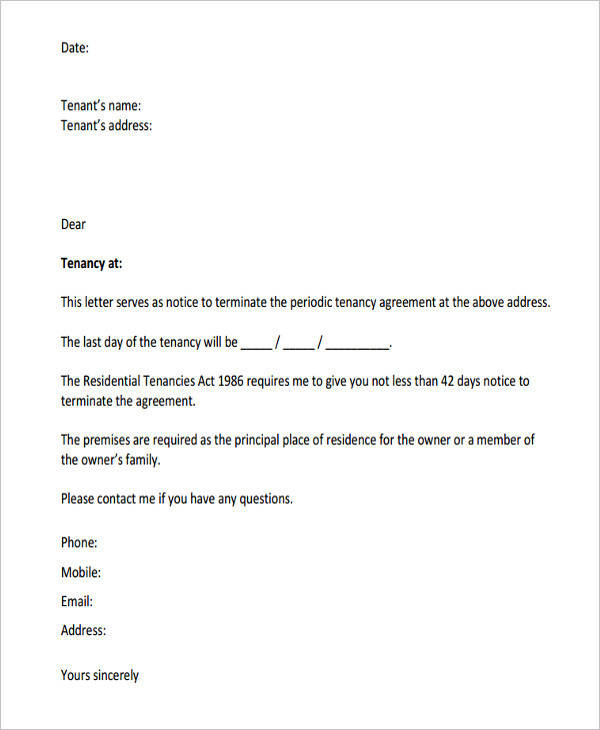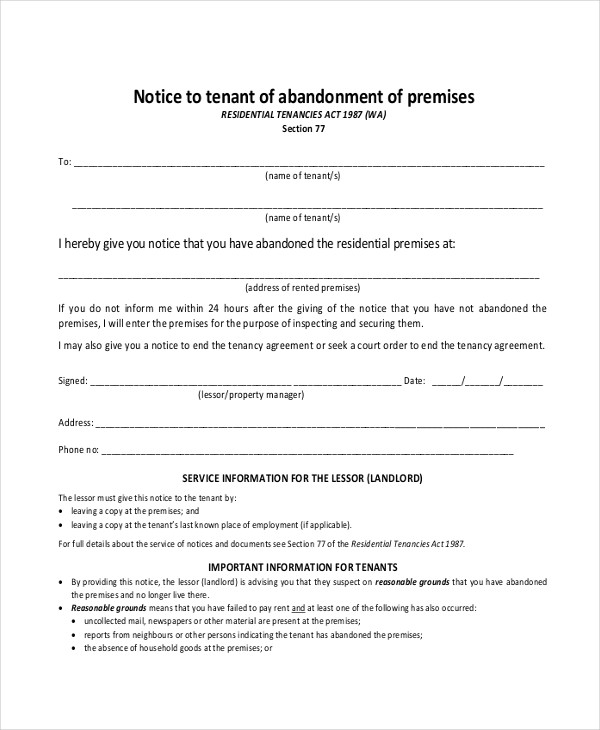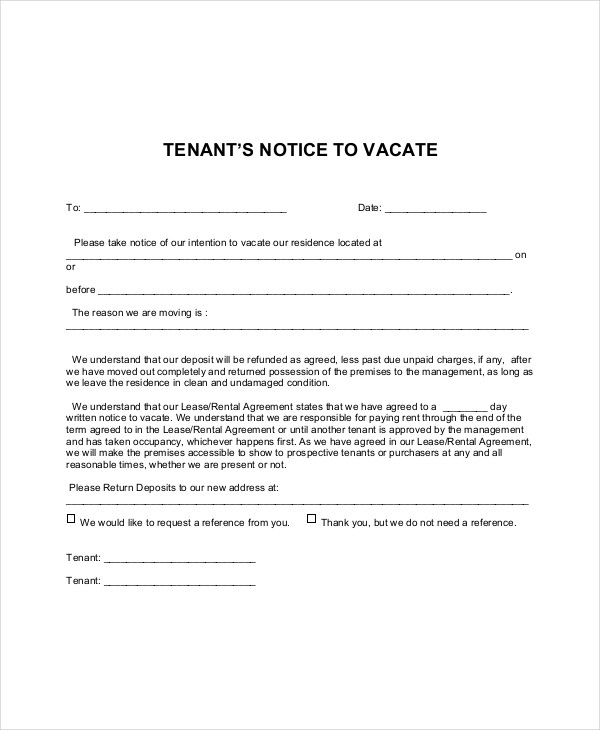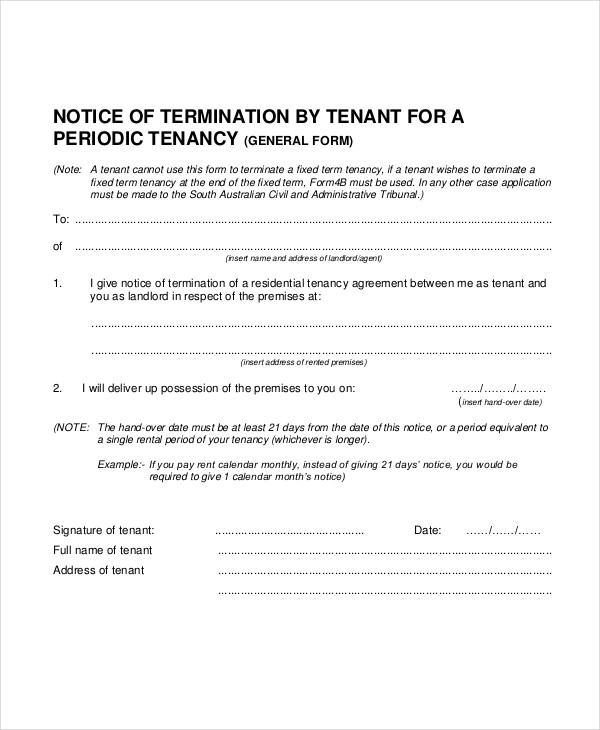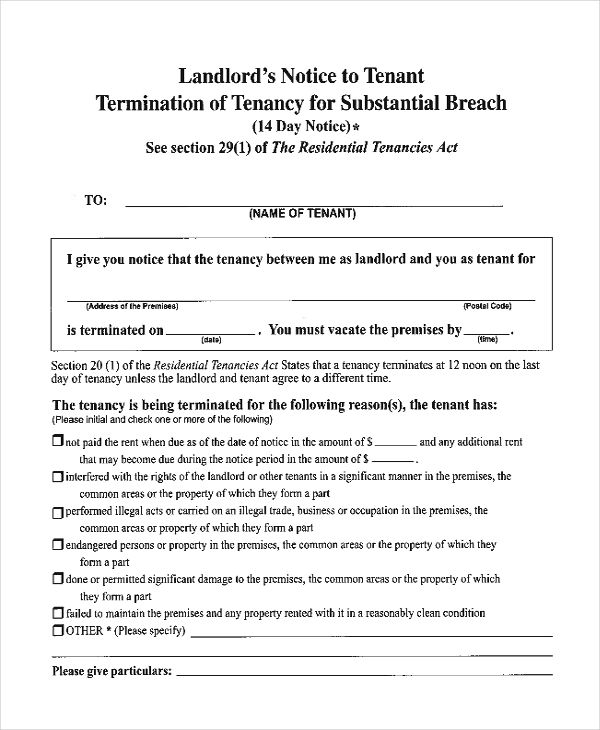6+ Tenant Notice Examples to Download
By definition, a notice is a document which notifies, informs, or warns people about something, usually in order to do something or make necessary preparations. For example, an employee usually needs to write a two-week notice letter when he/she plans on resigning from his/her current job.
A tenant notice, as its name suggests, is any free notice given by the landlord to a tenant typically to notify him/her about something. For instance, when a tenant violates a rule or two, or any term from the lease agreement, the landlord takes action, and depending on his discretion, may send a tenant notice.
Tenant Eviction Notice
Tenant 30 day Notice
Landlord to Tenant
Tenant Abandonment
Importance of a Tenant Notice
If a tenant violates rules, he/she needs to be aware of the consequences he/she must face. This is where the landlord sends a tenant notice.
When tenant violates the agreement of paying rent on time, and has done the violation more than once, the landlord will send him a late rent notice. If this continues, the landlord will send him a warning notice, stating the consequence if the tenant fails to oblige.
Finally, if the tenant does not comply with the conditions given by the landlord, he/she will be asked to leave through a notice to vacate or eviction notice.
A tenant notice is necessary for the parties to understand each other and properly communicate with each other.
What to Include in a Tenant Notice
If you are issuing a tenant notice, it is necessary for you to know the basic things to include in a tenant notice. Here are some things found in a tenant notice:
- Name of the tenant/tenants.
- Reason for sending the notice.
- Attachment of lease commercial agreement, including appropriate indication of terms violated, and proof of the landlord’s right to issue the notice.
- Date issued. If you’re writing an eviction notice, include the date of which the eviction will take effect.
- Possible ramifications of the tenant (to avoid eviction or further consequences).
- Landlord’s name and signature.
- Tenant’s name and signature.
However, depending on what kind of notice you are issuing or depending on the landlord, some of the things listed above may or may not be included.
Tenant Notice to Vacate
Periodic Tenancy
Breach Notice
Guidelines for Writing a Tenant Notice
If you’re a landlord, you’re probably thinking that someday, you’re going to have to write your tenant a short notice. If we’re on the same page, you might want to know some guidelines on how to write a tenant notice:
- Think of a main goal as to why you are issuing a tenant notice.
- Write the content and the details of the notice. This includes everything (but not limited to) the things mentioned above. Write accurately, clearly, and honestly.
- Establish authority. Make your writing speak for you, and make it sound authoritative, but avoid sounding offensive or too friendly.
- Write simply. Do not use difficult words which might be interpreted incorrectly. Just use simple language.
- Mind the length of your notice. You are not writing a novel, so keep it as short as you can. One page should be enough.
- Read your notice again, and revise as necessary. Recheck the content, correct errors you find, and improve your work notice.



